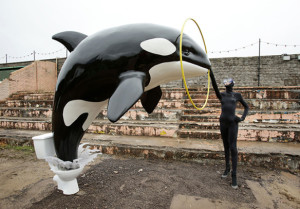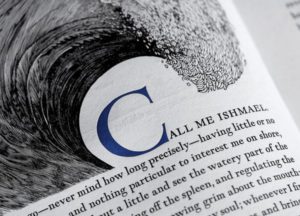Rebel Arts Education.A Simple Model for Real Research, Teaching, and Learning Outside the Professional Academic State (Re-edited November 2017)

I. THE ESSAY
1. It’s entirely clear that higher education is in crisis, in at least five basic ways:
(i) it’s deeply “commodified” by global corporate capitalism in the age of political neoliberalism, and in thrall to a false ideal of Enlightenment Lite, as described in this APP essay—

(ii) it’s deeply compromised by funding-dependence on the military-industrial-government complex, especially in the natural sciences and at the top state and private universities, but also right across the board, to the extent that the whole higher-education system is driven and led by the top state and private universities;
(iii) it’s constantly and increasingly being furiously-mobbed and witch-hunted by coercive moralists, indirect, hypocritical contravention of the stated ideals of free critical inquiry and speech in higher education, as described in this APP essay,

(iv) it’s overflowing, especially at the top-ranked institutions, with careerist, conformist, ratings-driven professional academics primarily obsessed with climbing the greasy T&P pole and ascending to the next level of the Great Chain of Professional Being, as described in these three APP essays,



and (v) it’s inherently exploitative, especially for those who will never get a tenured job, yet want one desperately, and are doing massively most of the undergraduate teaching, as described in these three APP essays,



In short, the Professional Academic State, aka the PAS, is totally fucked-up.
2. Now in view of the fact that it’s totally fucked-up, can the PAS be effectively subverted and changed radically for the better, or even just changed saliently for the better, from the inside?
Sadly, not unreasonably, and realistically, I truly doubt it.
Too many professional academic Fat Cats with too much coercive power have a huge vested interest in the PAS being a Reich that lasts for 1000 years–or anyhow for 100 years.

Professor Felix F. Catus, The XYZ-Funded Bigass Professor of Normalized Philosophy at Neoliberal U.
3. If the PAS cannot be effectively subverted or changed for the better from the inside, then it follows that:
EITHER we simply give up and become moist robots of the PAS,
OR ELSE everyone who’s fully serious about research, teaching, and learning—and I mean by “serious,” that they do it for its own sake, as a calling, and would do it even without the more or less coercive tenure-&-promotion and “other academic honours” incentives, and even if they weren’t being paid to do it—really, really needs to reject and exit this State, and operate outside it as if it didn’t exist.
Call this the post-PAS condition.
4. But as to door number 2, how, in Kant’s name, is living in the post-PAS condition really possible?
Well, here’s how.
In what follows immediately below, I provide a fairly simple 11-step post-PAS model for real research, teaching, and learning in the humanities and liberal arts, which I’ll call rebel arts education for short.
First, real philosophers should be rational rebels for humanity and lead the way towards rebel arts education.
Second, the overarching guiding ideal for rebel arts education is Heavy Duty Enlightenment, again as described in this APP essay,

Third, the basic unit of rebel arts education is the freely-created research group, with a minimum membership of 3-4 people, and a maximum of 8-12 people, who meet regularly in person, or over Skype (or whatever–provided it’s free to access and uncensored), and correspond regularly by Gmail (or whatever–ditto), while working on individual and collective research projects in their subject or subjects, freely using the almost unlimited amount of material now (and in the foreseeable future, increasingly) available online for serious research in the humanities and liberal arts.
Fourth, all members of each research group belong to academia.edu (or whatever–ditto), and post and share their work there with other academia.edu (or whatever–ditto) users.
Fifth, each research group also creates a special group-project internet website for sharing and publishing their work and disseminating their ideas to anyone with an internet connection, worldwide.
Sixth, each research group connects with other interested individual researchers and research groups worldwide, via academia.edu (or whatever–ditto) and via links with other research groups’ websites.
Seventh, each research group posts a set of lecture courses related to their research, or video-tapes real-time lectures, etc., and then posts them on their site for universal free access.
Eighth, for each lecture course, anyone anywhere can “take” that course by writing two short (=5000 word) essays or one long (=10,000 words) essay on the material, and having them read and marked-up + commented-on in Word, by 2 or 3 of the research group members, then returned to the course-taker by e-mail, after which the course-taker may receive a certificate for having completed the course if desired; and no record of uncompleted courses is retained.
Ninth, when a student has completed (say) four lecture courses, then s/he is qualified–but only if s/he also has the instructor’s permission–to enroll in small, seminar-style courses with face-to-face Skype (or whatever–ditto) seminar discussions, for which the writing requirement would be two 10,000 word essays, or one 20,000 word essay, and the same mark-up + comments/certification process.
Tenth, everyone in the group takes turns reading/marking up + commenting on papers for courses and answering research-related queries directed to the group site.
Eleventh, and finally, the researchers are supported financially in one or more of four basic ways:
(1) self-supporting day jobs,
(2) completely voluntary and no-strings-attached support by friends, family, or loving partner(s),
(3) generous individual strangers who give completely voluntary and completely no-strings-attached donations to the group, or
(4) crowd-sourced donations from multiple generous strangers, again completely voluntary and completely no strings attached.
5. Is the rebel arts education model practically possible, and if practically possible, is it humanly sustainable?
There is no doubt in my mind that it’s practically possible.
Since it’s all internet-driven, and since the internet is, currently, mostly free-use/free-access, and worldwide, and since the other basic vehicles, e.g., Skype, Gmail, academia.edu, and basic website-platforms are currently either free-use/free-access — or if not absolutely free-use/free-access, then still acceptably cheap/minimally-limited-access — and uncensored, then it’s do-able.
There is also no doubt in my mind that at least in principle, it’s humanly sustainable: where there’s a will, there’s a way.
6. But obviously there are some significant worries.
On the not-unreasonable and realistic assumption that the PAS is indeed a 1000-year or anyhow a 100-year Reich, then there will be, in the millennium-long or century-long meantime, many unavoidable overlaps between the worldwide network of research groups and the PAS, e.g.,
(1) some, many, or even most research group members will still have day jobs in the PAS,
(2) some, many, or even most of those who interact intellectually, whether individually with research group members or collectively with the groups, will still belong to the PAS,
(3) some, many, or even most research group members will still publish in venues controlled by the PAS, and
(4) some, many, or even most of the students who are taught by the research groups will still belong to the PAS.
And all that is, potentially, really problematic.
E.g., day jobs in the PAS are not only extremely energy-consuming and time-consuming, they’re constantly coercively monitored.
Hence not only will research group members who have these PAS day jobs be constantly tired and rushed-for-time, they will also be forced to live a double life, constantly anxious about and in fear of being professionally hassled or punished for their research-group membership, or losing their day jobs because of it.
So it’s certainly possible or even quite likely that many groups will fall apart from simple lack of energy, lack of time, anxiety, and fear.
And the same things would be true, mutatis mutandis, for would-be students participating in rebel arts education.
7. And of course there are also different but closely-related and equally significant worries for group members who exit the PAS or try to work altogether outside of it while pursuing rebel arts education, especially financial worries about other day jobs, or more personal worries about being regarded by others as “failed academics” and/or “unemployed bums” who are forever supported by others.
And again the same things would be true, mutatis mutandis, for would-be students participating in rebel arts education.
8. The only thing I can say to these significant worries, and to various others I haven’t mentioned, is that I think that even with full knowledge of them, we should still exit the PAS and enter into the post-PAS condition.
Given the total fucked-up-edness of the PAS, and the inherent worthiness of (the rest of) a life spent pursuing rebel arts education, it’s totally worth a try: so somebody should be trying it.
Where there’s a will and some courage, and OK I’ll admit it, also some “crazy,” “foolhardy,” and “self-destructively romantic” idealism, there’s a way.
9. Now one possible way is to start with the “semi-PAS,” as described in this APP essay,

namely the regional public universities, urban commuter universities, small liberal arts colleges, and community colleges, etc., and grow the rebel arts education movement from those roots.
More specifically, I think it’s quite possible that many philosophers and other academics at these institutions think that the PAS is absolute bullshit, and are more than ready for more or less quietly subverting and devolving the PAS out of existence by moving towards rebel arts education.
So shall we use our “weapons of the weak” and turn those weapons into PAS-dismantlers by starting a rebel arts education movement, with real philosophers in the semi-PAS, as quietly subversive rational rebels, leading the way?
Why the hell not? And why not do it right now?
II. CONVERSATIONAL POSTSCRIPT
L_E: My question is about whether you think research groups should have a main general focus.
Do you think of it as a generalist group or as a more narrow-focused group (such as people interested in Kantian philosophy or in critical meta-philosophy, like APP)?
The reason why I ask this is that while it would be good to have people from different backgrounds working together, not having some prior set of shared interests might be an issue when it comes to making people bond.
It’s just not that clear to me how groups should pick up those interests so as not to become just another group of specialists working online.
Z: I’m actually thinking that each research group would have a fairly narrow shared focus, as a starting point.
The generalist model would be more like a standard philosophy department, which I think is utterly hopeless as a model for real philosophy.
See, e.g., this APP essay,

People always say that it’s lovely in philosophy departments and across the profession to have pluralism, diverse standpoints, community, etc., etc., blah blah blah.
But at least in philosophy departments, and to an important extent across the profession too, it’s complete bullshit.
Certainly, in the departmental context, no one ever pays any real attention to anyone else’s work, or if they do, it’s only to criticize it negatively or make fun of it.
And the so-called pluralism, diversity, community, etc., etc., blah blah blah is just a recipe for mutual dogmatism and misunderstanding, and internecine conflict and tension, especially if difficult personalities are involved.
And in a coercive moralist environment, this is deadly.
But at the same time, I do also think that being a philosophical generalist is a very good thing!
And being an overall philosophical generalist is totally consistent with also focusing some or even many different research projects quite narrowly.
So each group should also be intellectually alive to what other people are doing, and also keep pushing their own focus outwards, reading new stuff, getting new ideas, experimenting with new presentational formats/styles of philosophical expression, and so on….









